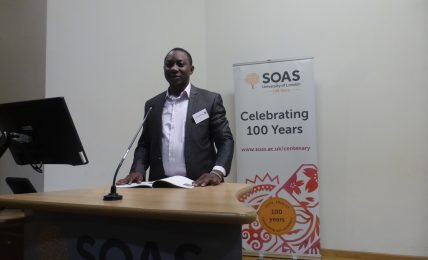The Day of the Python
Miss Duduzile Zwane is a modern young woman with the perfect life in Johannesburg. But she is troubled by persistent strange feelings. Following an encounter with a soothsayer, she embarks on a pilgrimage to a sacred cave - where she finds an unexpected source of enlightenment.









Nice my tjina!